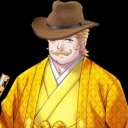Free Kingdom of Socotra
Socotra is an island nation in the Indian Ocean, located 150 miles east of the Horn of Africa and 240 miles south of the Arabian Peninsula. Consisting of four islands, the largest of which, Socotra, takes up 95% of the land area of the nation, Socotra is notable to scientists for its unique wildlife found nowhere else on Earth. Socotra remains a major center for eco-tourism, and the national government is a strong protector of wildlife both in the islands and in the surrounding oceans.
Once a part of the Mahra Sultanate and the British Protectorate of South Arabia, Socotra became an independent nation in 1964 following the al-Darsah Insurgency, which pitted the Socotran Independence Front against the forces of first the Mahra Sultanate, then the Royal Navy. Socotra is an absolute monarchy under the rule of Amir al-Darsah, aka Typhoon, who has ruled the nation since its independence in 1964. Socotra is one of two Arab nations that has never had national elections since its independence, the other being nearby Saudi Arabia. The nation has consistently ranked in the bottom twenty on the Economist's Democracy Index.
Government
Socotra's government is centered around its monarch, Amir al-Darsah. There is no independent legislature and all government employees serve at the whim of the Typhoon dynasty and its appointed representatives - the island has officially banned capital punishment save “when carried out by the monarch or members of the al-Darsah dynasty.” The nation's iconography is adorned with symbols of Typhoon - the nation's blue and white colors are the personal colors of the monarch and his armored face adorns the national flag along with the dragonblood tree that is the island's most famous unique species.
Socotra is a “metahuman monarchy”, a nation largely created and supported by the hydrokinetic abilities of Typhoon and other members of the al-Darsah dynasty. With few native sources of freshwater, the island's hundreds of thousands of inhabitants are entirely dependent on water reclamation and desalinization efforts carried out by the al-Darsah family. This has led Typhoon to declare himself “The Autocrat of the People” and contrast his personal monarchical style with the “false cults” like those of North Korea and New Freedom.
Population
The population of Socotra was 428,420 at the nation's 2004 census. 95% of the nation's population live on the island of Socotra proper, with a small scattering of scientists on the smaller islands Abd al-Kuri, Samhah, and Darsah. Demographically the nation is a mixture of Arabs, Indians, and Somalis, and is one of the few Gulf nations not to make use of widespread guest workers. The island has been a major center for Palestinian immigration since Typhoon's Decree Against The Storm (1976), and Palestinian-Soqotri make up the second largest Arab population in the nation behind native-born Soqotris. Critics outside Socotra have charged the nation's immigration policy (which, modeled on the American model, is among the most generous towards immigrants in the Middle East) is designed primarily to allow cover for the nation's human rights abuses, as well as the monarchy's interest in cultivating a population of native metahumans loyal to the regime.
The nation's largest city, and capitol, is Typhoon City, located on the site of the former hamlet Hadibo on the northern coast. With a population of 250,000, the city has a population five times the size of Socotra's population before independence.
Religion
Socotra is officially a Muslim nation, with 70% of the country's population practicing some sort of Islam. The official theology of the al-Darsah dynasty is Ijtihadi, a reformist ideology that rejects many 'traditional' interpretations of Islam. Fundamentalist critics of the regime have charged that Typhoon's embrace of Islam is largely fictitious and that the regime itself practices 'pagan idolatry' in its veneration of the al-Darsah family in general and Typhoon in particular. While Typhoon has admitted to consorting with non-Muslim deities such as Set in past years, Typhoon has been swift to point out that he has “bested them in every encounter.”
Economy
The primary occupations of the people of Socotra have traditionally been fishing, animal husbandry, and the cultivation of dates. Though the island nation's gradual urbanization has weakened traditional pastoralism in recent years, date harvesting and fishing have remained major components of the island's economy. The al-Darsah dynasty has made campaigns against overfishing by outsiders a major military priority, ensuring that Socotra's territorial waters retain some of the most thriving fish stock in the Indian Ocean.
Tourism in recent years has become a major part of the island's economy, with the region's low crime rates a major attraction for tourists from Africa, the Middle East, and Europe. Since the rise of the al-Darsah dynasty, Socotra's economy has begun embracing super-tech manufacturing, attracting global outside investment to encourage native production. This is particularly attractive to outside manufacturers as Socotra is not a signatory to the UN Non-Proliferation Treaties respecting super-technology. Human rights critics have charged that super-weapons manufactured in Socotra have been used in civil wars in Africa and elsewhere in the Middle East.
Legal System
Homosexuality and drug use (even of alcohol and tobacco) are officially illegal in Socotra and punishable by prison time. However, women enjoy the same legal rights as men and both have free access to medical care and education under reforms passed in the 1960s. Socotra's judiciary is made up primarily of native Soqotri lawyers appointed by decree of the monarch charged soley with “interpreting the decrees of Typhoon” - officials who serve at the pleasure of the monarch or his duly appointed representative.
Socotra's corruption index is high and cases of vice laws being enforced against foreigners (but waived for a 'donation to the state' in terms of large fees) are common. Polygamy and polyandry are both legal, assuming the primary spouses can demonstrate the financial ability to feed and clothe their new partner. Children officially become adults at the age of 21 but can serve in the military starting from the age of fifteen.
Foreign Policy
Strongly anti-colonialist from its foundation, Socotra has frequently engaged in military confrontations with Western powers over the last fifty years. Lacking a strong native military until the last two decades, for many years those confrontations were carried out by Typhoon personally in his role as the self-styled “Autocrat of the People.” In his fifty-year reign, Typhoon (later reinforced by other members of the al-Darsah dynasty) has fought British, American, European, and Arabian superhumans and allied military forces, and generally been successful. The regime officially abandoned overseas commitments in the wake of the Terminus Invasion of 1993 (in which Typhoon was critically wounded in combat with Omega), but critics of the regime continue to point to covert Socotran involvement in Dakanan instability, Islamic terrorism in Russia and various other incidents in nations officially at peace with the island nation.




